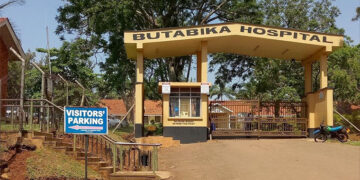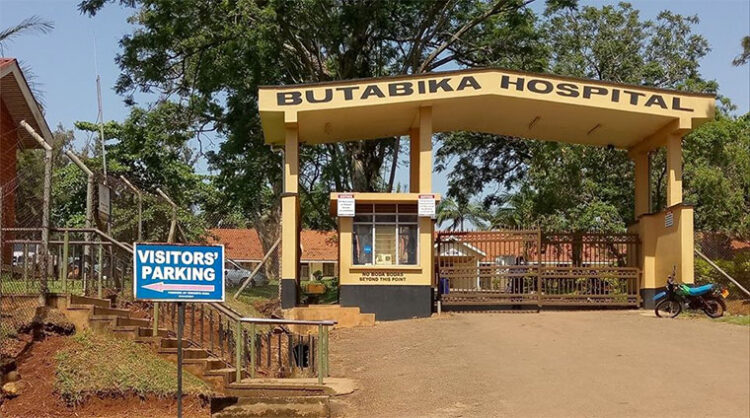By Leonard Kamugisha Akida,
KAMPALA
Butabika National Referral Mental Hospital is grappling with a sharp surge in mental illness cases, with daily in-patient numbers exceeding the facility’s capacity by more than double, the hospital’s Executive Director, Dr. Juliet Nakku, has revealed.
Speaking during a press briefing, Dr. Nakku confirmed that more than 1,300 patients are currently admitted at the facility, far above the hospital’s official bed capacity.
“We are operating beyond capacity,” she said. “Every day, we admit an average of 20 patients. That’s more than 100 new admissions every week. These numbers reflect the growing mental health burden in the community.”
 The crisis is not limited to in-patient care. According to Dr. Nakku, Butabika’s outpatient department is also stretched, with 100 to 150 children and adolescents seen weekly at its limited child psychiatry clinic, which only runs once a week.
The crisis is not limited to in-patient care. According to Dr. Nakku, Butabika’s outpatient department is also stretched, with 100 to 150 children and adolescents seen weekly at its limited child psychiatry clinic, which only runs once a week.
The spike in mental health cases is driven in part by increased alcohol and substance abuse, which accounts for about 30% of all admissions at Butabika. That translates to roughly 400 patients suffering from addiction-related conditions on any given day.
“This is a national issue,” Dr. Nakku stressed. “What we are seeing at Butabika is just a reflection of what’s going on in the broader community.”
She cited easy access to alcohol, cultural acceptance of drinking, and widespread stress among the population as key contributors to rising addiction and mental illness rates. She also emphasized the urgent need for a regulatory framework to control alcohol access, particularly among young people.
The 2024 national census included mental health indicators for the first time, estimating that 12% of Ugandans are affected by mental illness, a figure Dr. Nakku called “alarming but long overdue.”
Dr. Nakku called on government to expand specialized mental health services to regional centres. Currently, Butabika is home to the only public alcohol and drug rehabilitation unit in the country.
“The Ministry of Health has committed to decentralise these services, and this has now been embedded in the National Development Plan IV,” she noted.
The hospital is also receiving mental health patients from the streets, transported by Kampala Capital City Authority and other urban leaders, including recent transfers from the Masaka region. But with more people breaking down mentally every day, the cycle remains unrelenting.
Regarding mental health in schools, Dr. Nakku said the Ministry of Education is in the final stages of approving national guidelines through its Department of Counseling and Guidance.
She encouraged anyone in distress to seek help early, using the hospital’s mental health toll-free lines.
“When you feel like you can’t take it anymore, that’s when you need to call us,” Dr. Nakku urged.








































